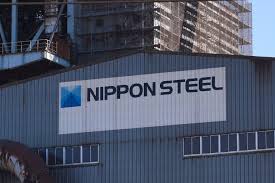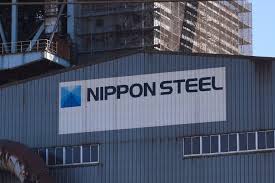
The proposed $15 billion acquisition of U.S. Steel by Japan's Nippon Steel has become a critical point of contention, with U.S. President Joe Biden now tasked with making a final decision. The deal, which has faced opposition due to its potential implications for national security and economic stability, highlights the complex interplay between foreign investment, national security, and domestic economic interests.
A Deal Under Scrutiny
The Committee on Foreign Investment in the United States (CFIUS), responsible for assessing the national security risks of foreign investments, referred the deal to President Biden after failing to reach a consensus. This referral grants Biden 15 days to approve, block, or take no action on the merger. If he does not intervene within this period, the acquisition could proceed despite significant opposition.
Both Nippon Steel and U.S. Steel had aimed to finalize the merger by the end of 2024, but the high-level scrutiny and political resistance have placed the deal in jeopardy. The potential collapse of the deal could result in Nippon Steel paying a $565 million termination penalty and possibly pursuing legal action against the U.S. government.
The Stakes for Nippon Steel
For Nippon Steel, the acquisition of U.S. Steel represents a strategic opportunity to expand its global steel production capacity. The deal would elevate its production from 65 million to 85 million metric tons annually, with the long-term goal of exceeding 100 million metric tons. The United States, a developed nation with rising steel demand and some of the highest steel prices globally, presents an attractive market for Nippon Steel. The acquisition of U.S. Steel is seen as a “once-in-a-lifetime opportunity,” according to Ryunosuke Shibata, an analyst at SBI Securities.
Nippon Steel has proposed measures to address national security concerns, such as appointing U.S. citizens to key management and board positions at U.S. Steel. However, these efforts have not fully allayed fears among U.S. policymakers and industry stakeholders.
National Security Concerns and Political Opposition
The primary opposition to the deal stems from concerns that foreign control of U.S. Steel could compromise domestic production capabilities critical to transportation, construction, and agriculture projects. A CFIUS letter cited potential risks to the supply of steel for these essential sectors. Additionally, critics argue that foreign ownership could weaken U.S. Steel’s ability to meet national defense requirements.
President Biden, who has consistently opposed the merger, is under pressure from labor unions and political allies. The United Steelworkers Union, a key stakeholder in the industry, has publicly denounced the deal. The proposed acquisition has also been a focal point in political campaigns, particularly in Pennsylvania, where U.S. Steel is headquartered. Both Biden and former President Donald Trump have voiced opposition to the merger to appeal to union voters in this critical swing state.
CFIUS Review and Legal Challenges
CFIUS’s inability to reach a consensus reflects the complexity of the deal. While some committee members believe Nippon Steel’s proposed remedies could mitigate risks, others remain unconvinced. The divided opinion led to the referral to Biden, marking a rare instance of a deal being escalated to the president for a decision.
Nippon Steel has pushed back against the opposition, arguing that its investment would enhance U.S. Steel’s production capabilities rather than diminish them. The company has emphasized that its status as a firm from an allied nation should alleviate concerns about national security risks. A 90-day review granted earlier allowed for additional deliberation, but the committee's ultimate referral to Biden underscores the unresolved tensions.
In its defense, Nippon Steel has suggested that political motivations are influencing the review process. A follow-up letter from the company claimed “impermissible influence” by Biden over the national security review, signaling potential legal action if the deal is blocked.
Economic and Strategic Implications
The U.S. steel industry occupies a critical role in the nation’s economy and infrastructure. Domestic steel demand has been increasing, driven by federal investments in infrastructure and defense. The Biden administration has prioritized strengthening domestic manufacturing and reducing reliance on foreign suppliers, making the proposed merger particularly contentious.
Supporters of the deal argue that Nippon Steel’s investment would bring technological advancements and financial resources to U.S. Steel, enhancing its competitiveness in a global market dominated by Chinese steel producers. However, opponents contend that the risks of foreign ownership outweigh the potential benefits, particularly in light of escalating geopolitical tensions.
The Broader Context of Foreign Investment
The Nippon Steel-U.S. Steel case is part of a broader trend of heightened scrutiny of foreign investments in critical industries. CFIUS has increasingly scrutinized deals involving technology, infrastructure, and other sectors deemed vital to national security. The committee’s recommendations have influenced several high-profile decisions, reflecting a growing emphasis on safeguarding U.S. economic and strategic interests.
The case also underscores the challenges of balancing openness to foreign investment with the need to protect domestic industries. While foreign investments can bring capital, expertise, and innovation, they can also raise concerns about control over critical resources and infrastructure.
Looking Ahead
As Biden deliberates on the merger, his decision will have far-reaching implications for U.S. industrial policy, foreign investment, and the steel industry’s future. A decision to block the deal would align with his administration’s emphasis on bolstering domestic manufacturing and addressing national security concerns. However, it could also discourage foreign investment and lead to legal disputes with Nippon Steel.
Conversely, allowing the deal to proceed would signal a willingness to accommodate foreign investment under specific conditions. It would also underscore the importance of U.S. Steel’s role in global markets and the potential benefits of strategic partnerships with allied nations.
The Nippon Steel-U.S. Steel merger represents a critical test of U.S. policy on foreign investment in strategic industries. With the steel industry’s future and national security considerations at stake, Biden’s decision will set a precedent for similar cases in the years to come. As the deadline approaches, the outcome remains uncertain, reflecting the intricate balance between economic opportunity and national security in an increasingly interconnected world.
(Source:www.scmp.com)
A Deal Under Scrutiny
The Committee on Foreign Investment in the United States (CFIUS), responsible for assessing the national security risks of foreign investments, referred the deal to President Biden after failing to reach a consensus. This referral grants Biden 15 days to approve, block, or take no action on the merger. If he does not intervene within this period, the acquisition could proceed despite significant opposition.
Both Nippon Steel and U.S. Steel had aimed to finalize the merger by the end of 2024, but the high-level scrutiny and political resistance have placed the deal in jeopardy. The potential collapse of the deal could result in Nippon Steel paying a $565 million termination penalty and possibly pursuing legal action against the U.S. government.
The Stakes for Nippon Steel
For Nippon Steel, the acquisition of U.S. Steel represents a strategic opportunity to expand its global steel production capacity. The deal would elevate its production from 65 million to 85 million metric tons annually, with the long-term goal of exceeding 100 million metric tons. The United States, a developed nation with rising steel demand and some of the highest steel prices globally, presents an attractive market for Nippon Steel. The acquisition of U.S. Steel is seen as a “once-in-a-lifetime opportunity,” according to Ryunosuke Shibata, an analyst at SBI Securities.
Nippon Steel has proposed measures to address national security concerns, such as appointing U.S. citizens to key management and board positions at U.S. Steel. However, these efforts have not fully allayed fears among U.S. policymakers and industry stakeholders.
National Security Concerns and Political Opposition
The primary opposition to the deal stems from concerns that foreign control of U.S. Steel could compromise domestic production capabilities critical to transportation, construction, and agriculture projects. A CFIUS letter cited potential risks to the supply of steel for these essential sectors. Additionally, critics argue that foreign ownership could weaken U.S. Steel’s ability to meet national defense requirements.
President Biden, who has consistently opposed the merger, is under pressure from labor unions and political allies. The United Steelworkers Union, a key stakeholder in the industry, has publicly denounced the deal. The proposed acquisition has also been a focal point in political campaigns, particularly in Pennsylvania, where U.S. Steel is headquartered. Both Biden and former President Donald Trump have voiced opposition to the merger to appeal to union voters in this critical swing state.
CFIUS Review and Legal Challenges
CFIUS’s inability to reach a consensus reflects the complexity of the deal. While some committee members believe Nippon Steel’s proposed remedies could mitigate risks, others remain unconvinced. The divided opinion led to the referral to Biden, marking a rare instance of a deal being escalated to the president for a decision.
Nippon Steel has pushed back against the opposition, arguing that its investment would enhance U.S. Steel’s production capabilities rather than diminish them. The company has emphasized that its status as a firm from an allied nation should alleviate concerns about national security risks. A 90-day review granted earlier allowed for additional deliberation, but the committee's ultimate referral to Biden underscores the unresolved tensions.
In its defense, Nippon Steel has suggested that political motivations are influencing the review process. A follow-up letter from the company claimed “impermissible influence” by Biden over the national security review, signaling potential legal action if the deal is blocked.
Economic and Strategic Implications
The U.S. steel industry occupies a critical role in the nation’s economy and infrastructure. Domestic steel demand has been increasing, driven by federal investments in infrastructure and defense. The Biden administration has prioritized strengthening domestic manufacturing and reducing reliance on foreign suppliers, making the proposed merger particularly contentious.
Supporters of the deal argue that Nippon Steel’s investment would bring technological advancements and financial resources to U.S. Steel, enhancing its competitiveness in a global market dominated by Chinese steel producers. However, opponents contend that the risks of foreign ownership outweigh the potential benefits, particularly in light of escalating geopolitical tensions.
The Broader Context of Foreign Investment
The Nippon Steel-U.S. Steel case is part of a broader trend of heightened scrutiny of foreign investments in critical industries. CFIUS has increasingly scrutinized deals involving technology, infrastructure, and other sectors deemed vital to national security. The committee’s recommendations have influenced several high-profile decisions, reflecting a growing emphasis on safeguarding U.S. economic and strategic interests.
The case also underscores the challenges of balancing openness to foreign investment with the need to protect domestic industries. While foreign investments can bring capital, expertise, and innovation, they can also raise concerns about control over critical resources and infrastructure.
Looking Ahead
As Biden deliberates on the merger, his decision will have far-reaching implications for U.S. industrial policy, foreign investment, and the steel industry’s future. A decision to block the deal would align with his administration’s emphasis on bolstering domestic manufacturing and addressing national security concerns. However, it could also discourage foreign investment and lead to legal disputes with Nippon Steel.
Conversely, allowing the deal to proceed would signal a willingness to accommodate foreign investment under specific conditions. It would also underscore the importance of U.S. Steel’s role in global markets and the potential benefits of strategic partnerships with allied nations.
The Nippon Steel-U.S. Steel merger represents a critical test of U.S. policy on foreign investment in strategic industries. With the steel industry’s future and national security considerations at stake, Biden’s decision will set a precedent for similar cases in the years to come. As the deadline approaches, the outcome remains uncertain, reflecting the intricate balance between economic opportunity and national security in an increasingly interconnected world.
(Source:www.scmp.com)














